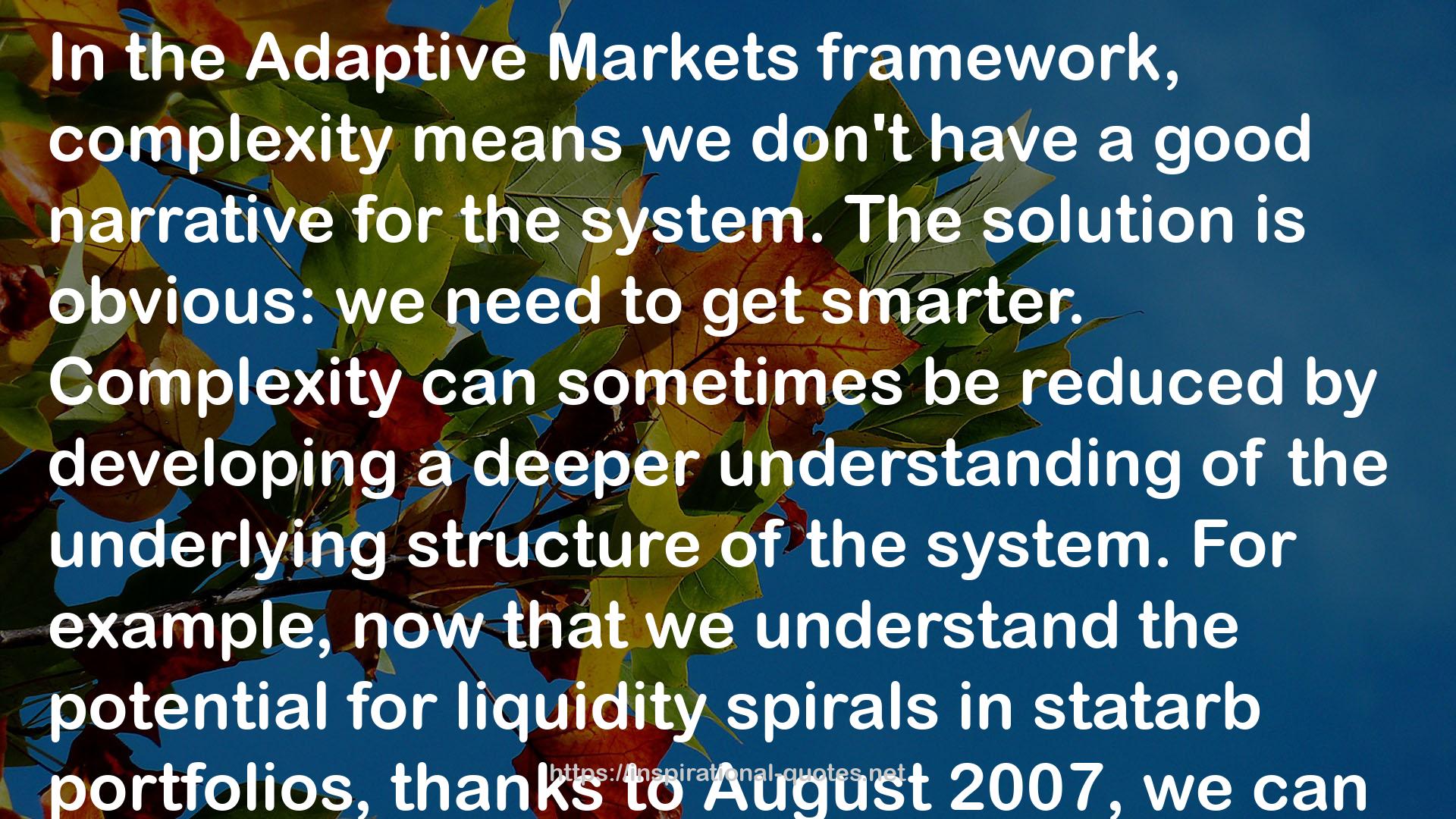" In the Adaptive Markets framework, complexity means we don't have a good narrative for the system. The solution is obvious: we need to get smarter. Complexity can sometimes be reduced by developing a deeper understanding of the underlying structure of the system. For example, now that we understand the potential for liquidity spirals in statarb portfolios, thanks to August 2007, we can better prepare for them.
But the Adaptive Markets framework points to a second problem with complexity, which is the potential divisiveness of special knowledge and the potential for conflict. If the financial system becomes so complex that only a small number of elites truly understand its function and proper maintenance, this knowledge divides the population into those who know and those who don't. Of course, this situation arises with any piece of unique information - I know how to make scallion pancakes in a particular way so they're crispy on the outside but soft and chewy on the inside, and you probably don't. But that piece of knowledge is hardly worth keeping a secret, and the fact that you don't have that knowledge isn't going to get you too upset.
But suppose I know how to cure diabetes and you don't. Or I know how to prevent cancer by avoiding certain common foods and you don't. Or I know how to price mortgage-backed securities and credit default swaps and you don't. In these cases, the knowledge I possess confers a certain power and status to me. Complexity creates the need for better narratives and those who have those narratives will become the high priests of complex systems, the gatekeepers of critical, life-altering knowledge. And the difficulty in joining the priesthood - earning an MD/Ph.D. in molecular biology and having twenty year of work experience at biotech and pharmaceutical companies, in the case of curing diabetes - coupled with the societal values of the special knowledge will determine the divisiveness of this elitism. "
― , Adaptive Markets: Financial Evolution at the Speed of Thought
